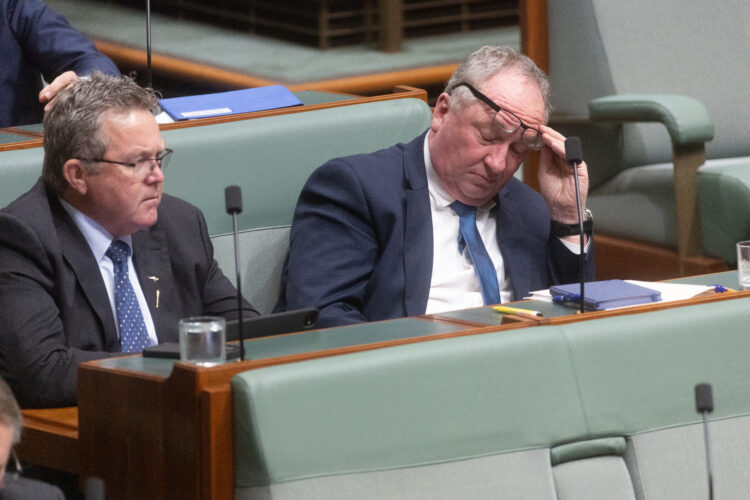Guys, chill on the tariffs
There’s a few stories around the traps today that profession golf cheat (see video) and also President of the United States, Donald Trump might be about to increase tariffs on Australia from the current level of 10% to 15% or 20%.
The reason for this is in the past couple days when he was over in the UK promoting his private golf club he also did some “deals” with the UK and EU on tariffs.
The deal was for the tariffs on the EU to be 15% – down from the initial 30%. IN return the EU promises to buy more military stuff from the USA. This of course is the whole basis behind Trump wanting every other nation to lift its defence spending – it is also unsubtle code for “buy more4 American weapons”.
The problem for Australia is that while the US currently has a 10% tariff on our exports, because that was the baseline that he set for all nations including those with penguins living on them, now 15% or 20% seems to the be the bottom line. He told reporters that “We are going to be setting a tariff, for essentially the rest of the world and that’s what they’re going to pay if you want to do business in the United States… I would say in the range of 15 to 20 per cent. Probably one of those two numbers.”
So what does this mean?
Firstly, Trump is making it up as he goes. But you know that. What does it mean for you buying stuff from the shops?
NOTHING.
Remember, tariffs are basically a GST for imports – Trump is putting up the prices of thins American import. He is not changing at all the prices of things we pay. He is not even changing the price of things we sell to Americans – we still get the same price, and then the person who bought it from us has to pay the US govt a tax (tariff).
The problem is that because of that tariffs American will likely have to buy less stuff from us (and everywhere else) because it all costs them more now.
The other thing to remember though is the US is putting tariffs on everyone, which means there is no disadvantage to Australian companies compared to anywhere else. In fact, because we currently have a lower tariff than most places, it is in effect cheaper to buy the same thing from Australia than from somewhere else. So this means the impact even of our exports to the USA might be less than otherwise would be the case.
But just remember – this does not change the cost of anything we buy from the US, or anything else in the shops.
A US tariff is paid buy Americans.
